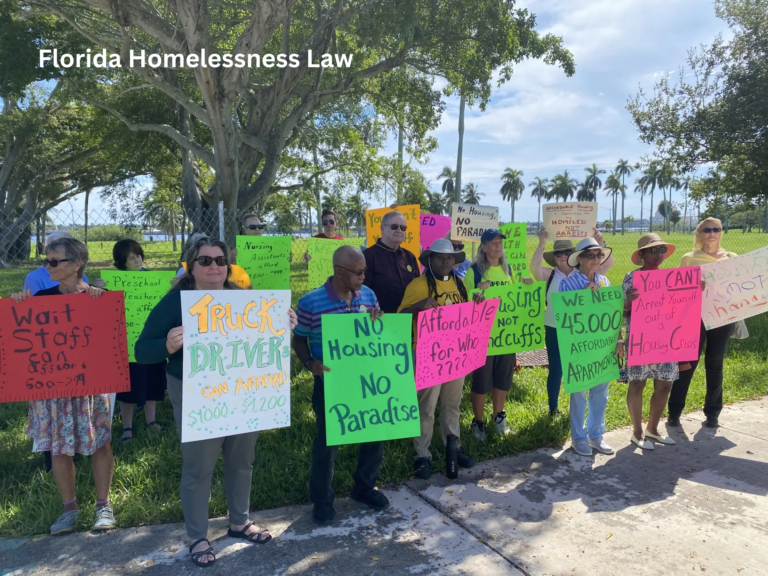
Navigating family law can feel overwhelming, especially in a state as diverse as Florida. Each case is unique, filled with emotions and complexities that require careful handling. One important aspect of this legal landscape is Florida Family Law 12.100, which plays a crucial role in various family-related matters. Whether you’re facing custody disputes or seeking modifications to existing orders, understanding the ins and outs of this section can empower you to make informed decisions. Let’s dive into what Florida Family Law 12.100 entails and how it can impact your situation.
Understanding Family Law in Florida
Family law in Florida encompasses a wide range of legal issues that affect families and households. From marriage and divorce to child custody and support, it covers vital aspects of family life.
Florida’s laws aim to protect the rights of individuals while promoting the best interests of children involved in disputes. Each case can vary significantly based on unique circumstances, making personalized legal advice essential.
Navigating these waters often requires an understanding not only of state statutes but also local court practices. Resources like mediation and collaborative law are frequently encouraged to help resolve conflicts amicably.
Additionally, considering the emotional weight behind these cases is crucial. Families face challenges that impact their futures, which makes knowledgeable support all the more important during such times.
What is Florida Family Law 12.100?
Florida Family Law 12.100 refers to specific procedural rules designed for family law cases in the state of Florida. This rule is part of the broader framework that governs how family-related legal matters are handled.
The essence of Rule 12.100 lies in its focus on ensuring fairness and efficiency in proceedings involving issues like child custody, divorce, or adoption. It provides guidelines for submitting necessary documents, including petitions and motions.
By following these established protocols, parties can navigate complex emotional landscapes more smoothly. The goal is to expedite resolutions while protecting everyone involved—especially children—during challenging transitions.
Understanding this rule helps individuals prepare adequately when facing family law disputes, enabling them to present their cases effectively before a judge.
Elements of Florida Family Law 12.100
Florida Family Law 12.100 encompasses essential elements that guide family-related legal proceedings in the state. This rule primarily focuses on the procedures for obtaining relief in various domestic matters.
Among these elements, petitions play a crucial role. They outline the specific requests made to the court regarding issues like child custody, alimony, and child support.
Another vital component is service of process. Properly notifying all parties involved ensures fairness and transparency during hearings.
Moreover, evidence requirements are significant under this rule. Parties must present adequate documentation and testimony to support their claims or defenses effectively.
Understanding timelines cannot be overlooked. Deadlines for filing motions or responding to petitions help maintain efficiency throughout legal processes involving families.
Common Issues Addressed in Florida Family Law 12.100
Florida Family Law 12.100 deals with various pressing family issues. One of the most common matters it addresses is child custody disputes. Parents often find themselves in heated arguments over who gets primary custody or visitation rights.
Another significant area involves divorce proceedings, particularly concerning alimony and division of marital assets. Couples need clarity on how to fairly distribute their belongings and finances after separating.
Domestic violence is also a crucial concern under this law. Victims can seek protective orders, ensuring their safety from abusive partners during tumultuous times.
Child support arrangements are frequently addressed as well. Courts strive to ensure that financial responsibilities are met for the upbringing of children involved.
Modifications to existing orders come into play when circumstances change significantly, requiring legal adjustments to parenting plans or support agreements. Each situation varies but remains rooted in the framework provided by Florida Family Law 12.100.
How to File for a Hearing Under Florida Family Law 12.100
Filing for a hearing under Florida Family Law 12.100 requires careful preparation. Start by gathering all necessary documents, including any relevant supporting evidence.
Next, complete the appropriate forms available from your local courthouse or online through the Florida State Courts website. Be sure to provide accurate information and details pertaining to your case.
Once you have filled out your forms, file them with the clerk of court in your jurisdiction. You may need to pay a filing fee at this stage; check if you qualify for a waiver based on financial need.
After submission, serve copies of your filed documents to all involved parties. This ensures everyone is informed and can respond appropriately before the hearing takes place.
Keep track of deadlines and prepare for potential follow-up hearings or additional documentation requests as required by the court system.
Potential Outcomes and Enforcement of Orders
When a court issues an order under Florida Family Law 12.100, it carries significant implications for all parties involved. The outcomes can vary widely, depending on the specifics of each case.
Typically, these orders aim to resolve disputes over child custody or support. Once issued, they become legally binding and must be adhered to by both parties.
If one party fails to comply with the terms set forth in the order, enforcement actions may be necessary. This could involve filing a motion for contempt against the non-compliant party. Courts take violations seriously and can impose penalties ranging from fines to modifications of custody arrangements.
The enforcement process ensures that children’s best interests are prioritized and helps maintain stability in their lives. Understanding this aspect of Florida Family Law 12.100 is crucial for those navigating family-related legal matters.
Conclusion
Understanding Florida Family Law can feel overwhelming. However, knowing about specific laws like Florida Family Law 12.100 can make navigating your situation much easier.
Florida Family Law 12.100 serves as a crucial framework for family-related legal matters in the state. It provides clarity on various legal processes and requirements that families might encounter during disputes or changes in circumstances.
The elements outlined in this law address critical areas such as child custody, support obligations, and visitation rights. Understanding these components allows individuals to prepare better for their cases and know what to expect during proceedings.
Common issues addressed under Florida Family Law 12.100 include child custody arrangements, modifications to existing orders, and enforcement of parenting plans. These are often sensitive topics that require careful consideration and understanding of the law’s provisions.
Filing for a hearing under Florida Family Laws 12.100 involves several steps that need to be followed precisely. From completing necessary paperwork to attending hearings, each part plays a vital role in achieving desired outcomes.
Potential outcomes from hearings held under this law can vary widely based on individual circumstances but generally aim at resolving disputes amicably while enforcing compliance with court orders is essential for maintaining stability within families.
Staying informed about laws like Florida Family Law 12.100 empowers individuals facing family law issues to take proactive steps toward resolution while ensuring their rights are protected throughout the process.






